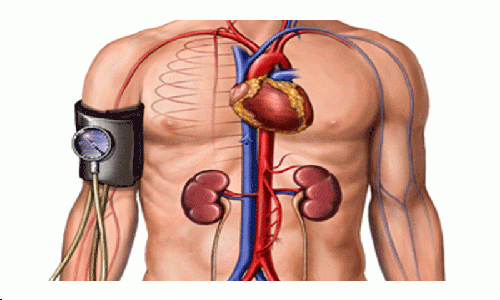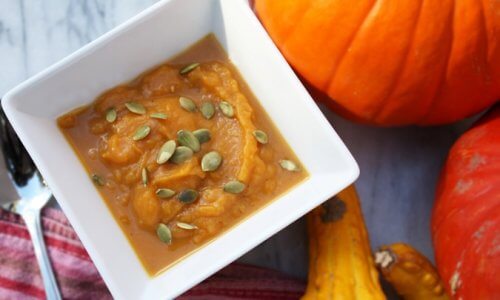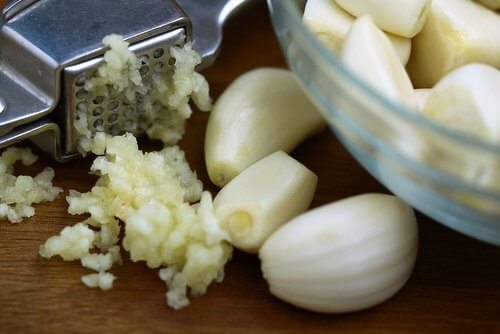6 Foods to Help You Control Your Blood Pressure


Reviewed and approved by the pedagogue in physical education and nutritionist Elisa Morales Lupayante
Hypertension is a medical condition that makes your blood flow through your arteries much faster than it should. In other words, it’s a problem with blood pressure.
There’re several issues that can influence this phenomenon and make your blood pressure reach potentially dangerous levels.
The factors that affect your blood pressure the most are:
- Frequent stress
- Consuming red meat and high-cholesterol foods regularly
- Smoking
- Alcohol
- Maintaining a sedentary lifestyle
Because this condition doesn’t have obvious symptoms, it’s hard to catch it before it’s too late.
To prevent serious problems, start by adding these foods to your diet:
1. Bananas
A average-sized banana has about 450 grams of potassium, making it one of the most powerful natural medicines for controlling blood pressure.
That’s because this mineral helps your body control how salt is processed in your body. As you already know, consuming too much salt will surely affect your blood pressure.
Along with watching your salt consumption. you must pay serious attention to your potassium levels.
A potassium deficiency can cause sodium imbalances and compromise many bodily functions.
Check this out, too: 4 Banana Smoothies to Fight Fluid Retention and Lose Weight
2. Pumpkin seeds

You’ll find managing you blood pressure to be much easier if you start eating pumpkin seeds. Thanks to their high zinc content, they can help reverse the effects of hypertension.
When your body doesn’t get enough zinc, your arteries will end up losing elasticity, which will result in inflammation.
Pumpkin seeds also taste great and are an excellent source of:
- Protein
- Fatty acids
- Minerals
- Amino acids
All of these also act as a good anti-inflammatory, emollients, and anti-parasite remedy.
3. Garlic

- Hardening of your arteries, or arteriosclerosis
- Heart attacks
- Coronary heart disease
This is due to the great amounts of Vitamin C, Vitamin B6, and manganese in garlic.
4. Yogurt
The consumption of calcium is very important, both for children and adults.
When you regularly eat calcium-rich foods and get the recommended 100 to 150 milligrams, you’ll be lowering your risk of elevated blood pressure.
Yogurt provides your body with a wide variety of nutrients, including calcium, protein, potassium, and magnesium. Calcium in particular will help you manage your blood pressure because it keeps your blood pH under control.
That keeps your body in an alkaline state that prevents your blood pressure from rising.
5. Potatoes
Potatoes are very healthy if you eat them in the right amounts and cooked the right way.
Remember when we mentioned how important potassium is when it comes to blood pressure? Well, you should know that potatoes are a significant source of potassium.
This mineral will help you control your blood pressure by lowering your sodium levels.
In addition, they’re rich in magnesium. Magnesium reduces your stress levels and improves your immune system.
6. Onions to help your blood pressure
Just like garlic, onions have superpowers for your arteries and your whole body.
Onions help improve blood circulation and fight high cholesterol as well as hypertension.
This is due to their high content of:
- Essential oils
- Vitamins B complex
- Vitamin E
- Vitamin C
- Minerals (potassium, magnesium, phosphorus, calcium, sodium, sulfur)
See Also: Foods That Provide the Most Potassium
Try adding onions to low-fat recipes. You can make them a part of tasty salads along with lemon. Of course, it also goes well in any soup.
Keep in mind that the advice of health professionals is indispensable. Always add these foods regularly into your diet under the supervision of your doctor.
All cited sources were thoroughly reviewed by our team to ensure their quality, reliability, currency, and validity. The bibliography of this article was considered reliable and of academic or scientific accuracy.
- Houston MC. The Importance of potassium in managing hypertension. Curr Hypertens Rep. 2011;
- El-Mosallamy AEMK, Sleem AA, Abdel-Salam OME, Shaffie N, Kenawy SA. Antihypertensive and Cardioprotective Effects of Pumpkin Seed Oil. J Med Food. 2012;
- Ried K, Fakler P. Potential of garlic (Allium sativum) in lowering high blood pressure: Mechanisms of action and clinical relevance. Integrated Blood Pressure Control. 2014.
- Buendia JR, Li Y, Hu FB, Cabral HJ, Loring Bradlee M, Quatromoni PA, et al. Long-term yogurt consumption and risk of incident hypertension in adults. J Hypertens. 2018;
- Kalus U, Pindur G, Jung F, Mayer B, Radtke H, Bachmann K, et al. Influence of the onion as an essential ingredient of the Mediterranean diet on arterial blood pressure and blood fluidity. Arzneimittelforschung. 2000;
This text is provided for informational purposes only and does not replace consultation with a professional. If in doubt, consult your specialist.








